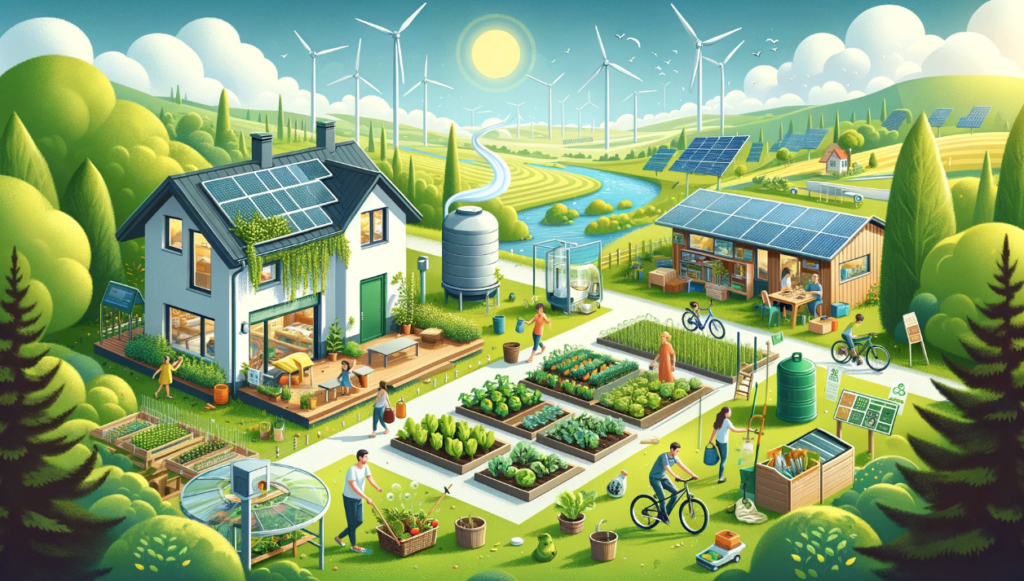Lesson 9.
Sustainable Living Practices (持続可能な生活慣行)

▮ Explanatory Text:
Sustainable living practices are ways of reducing one’s carbon footprint and living in harmony with the planet. These practices aim to minimize waste, conserve natural resources, and support the well-being of ecosystems and communities. From reducing energy consumption and embracing renewable energy sources to supporting local and sustainable food systems, sustainable living encompasses a wide range of actions that contribute to a healthier planet. It’s about making conscious choices that ensure the long-term health and survival of our environment.
▮ Common Phrases:
1. Reducing energy consumption can be achieved by…
2. Supporting local economies helps because…
3. One way to minimize waste is…
4. Adopting a plant-based diet contributes to…
5. To live sustainably, we must…
▮ Example Sentences:
1. Reducing energy consumption can be achieved by using energy-efficient appliances and lighting.
2. Supporting local economies helps reduce the carbon footprint associated with transporting goods.
3. One way to minimize waste is by practicing recycling and composting.
4. Adopting a plant-based diet contributes to lower greenhouse gas emissions from food production.
5. To live sustainably, we must consider the environmental impact of our daily choices.
▮ Questions:
1. What are some simple changes you can make in your daily life to live more sustainably?
This question encourages learners to think about and discuss practical and achievable ways to incorporate sustainable practices into their lives.
2. How does reducing energy consumption contribute to environmental sustainability?
Participants explore the relationship between energy use, fossil fuel dependency, and environmental impact, discussing the benefits of energy conservation.
3. Why is supporting local economies considered a sustainable practice, and how can you participate in it?
This prompts a discussion on the importance of local sourcing for sustainability and ways individuals can support local businesses and agriculture.
Discuss the environmental benefits of minimizing waste through recycling, composting, and reusing materials.
Learners examine the impact of waste reduction on resource conservation and environmental health, sharing ideas for minimizing waste in everyday life.
4. What role does diet play in sustainable living, and how can altering dietary choices impact the environment?
This question invites learners to discuss the connection between food production, dietary habits, and environmental sustainability, considering the effects of different diets on the planet.
▮ Discussion Instructions:
Select a sustainable living practice that you find interesting or that you’re passionate about. Discuss its benefits, challenges, and how it can be implemented in individual lifestyles or communities. Reflect on how adopting such practices can contribute to a more sustainable future for the planet.







